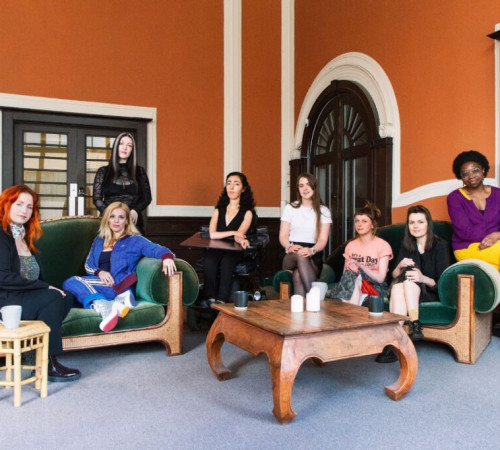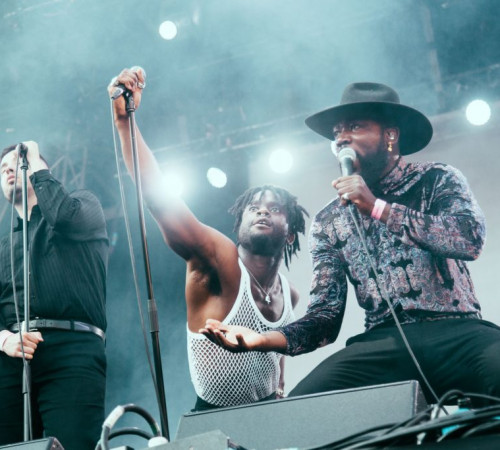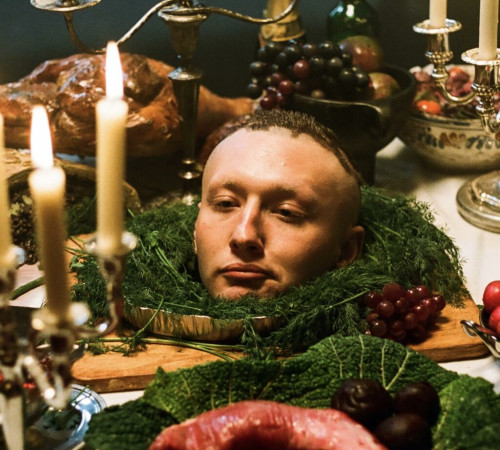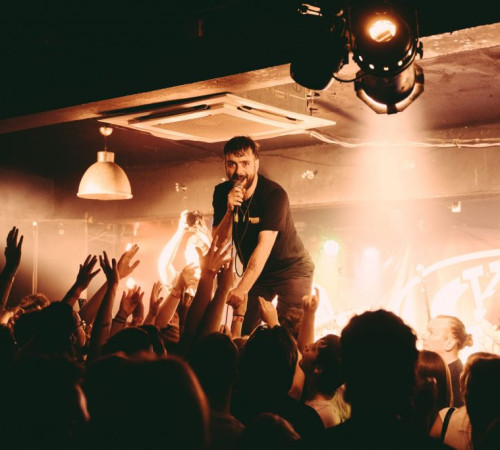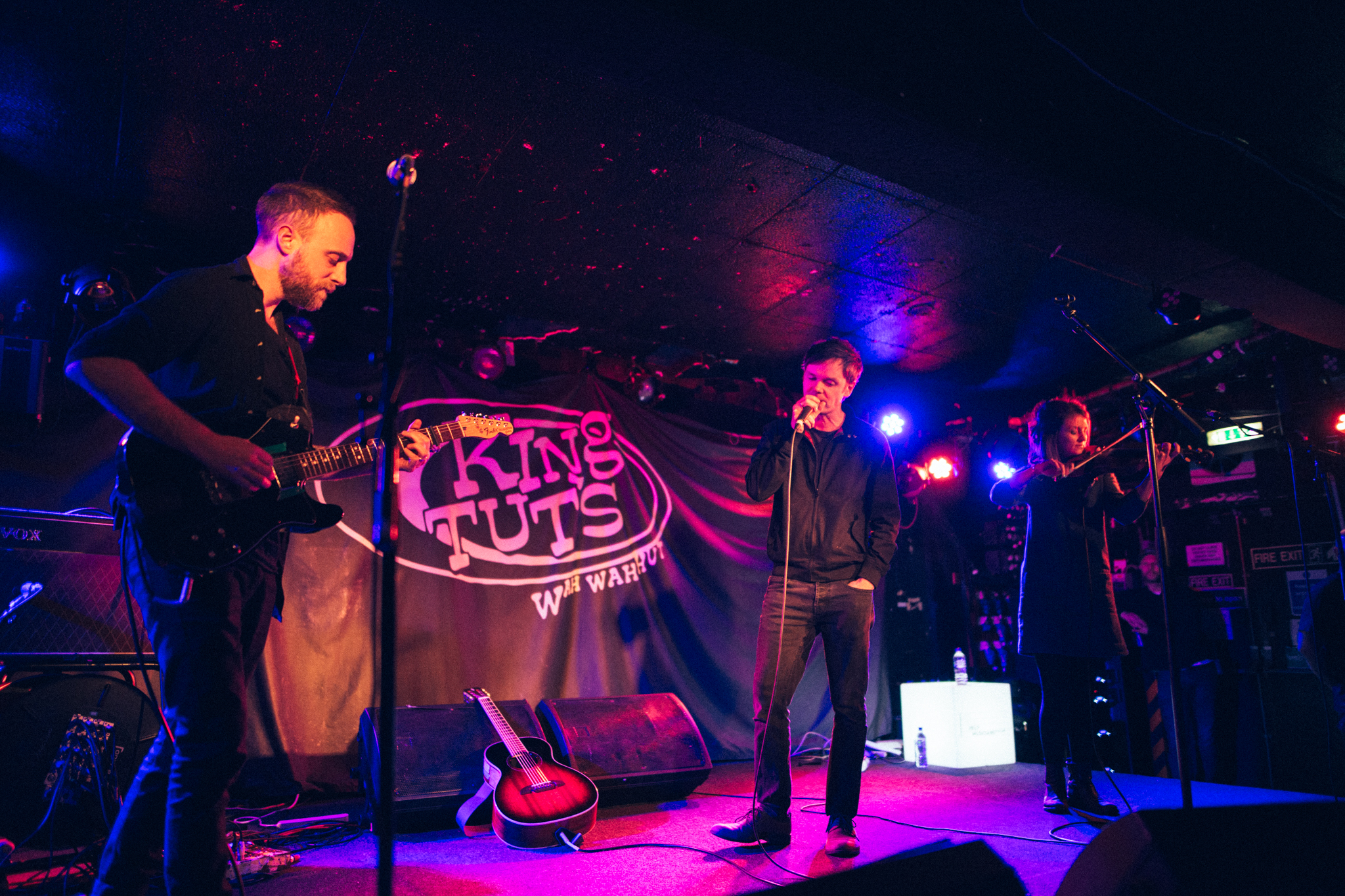 ON a night that celebrated the continued prosperity and wellbeing of Scotland’s music scene and the artists that make it so endearingly special, it was only fitting that a band that has long exemplified the restlessly creative spirit of the nation should be occupying the top of the bill.
ON a night that celebrated the continued prosperity and wellbeing of Scotland’s music scene and the artists that make it so endearingly special, it was only fitting that a band that has long exemplified the restlessly creative spirit of the nation should be occupying the top of the bill.
Performing alongside a litany of talented stars that could well be poised to enjoy a similar career of continued longevity and vitality in not only our country but in the hearts and minds of thousands around the globe, Idlewild may be elder statesmen that have witnessed the industry undergo seismic alterations but they still possess that very same drive and ambition that guided them as a local Edinburgh band.
When discussing the widely revered venue that tonight’s show will take place, frontman Roddy Woomble crafts a comparison to how King Tut’s Wah Wah Hut plays an indispensible role in the development of new acts in the same way that the West Port’s Cas Rock did for them.
“Yeah, I mean, I don’t place too much emphasis on venues. All of my favourites have closed down. That’s the good thing about King Tut’s is that it hasn’t, it’s managed to change as the music industry’s changed and fulfilled a need for a venue of this size that encourages local bands to play and also bring in international acts. I like it, the only one I’ve got an emotional connection is the one in Edinburgh that we played every week when we started but it’s closed down and is now a Nisbet’s Wholesalers. Proper dive bar, they let us play because we had a local following and could sell beer. He thought we were shite to begin with but let us play whenever we wanted.”
Given the fact that the band’s most recent Glasgow shows were in front of capacity crowds at The ABC, it would be entirely unsurprising if the prospect of returning to smaller, more intimate settings would be a daunting proposition to the band. For Roddy, this juxtaposition between huge venues and more up-close and personal affairs has been a hallmark of their tenure as musicians.
“I do lots of wee gigs and solo stuff so I’m used to playing to small crowds in folk clubs and Art Centres. In our 22 years in being a band, there was only a small five or six-year period where we were always just playing big halls. On our way up to that we were playing lots of different venues, we’d play to 3000 people in the UK and then you’d go over to Germany and be in the pubs again so everything was always quite tempered. They’re all very different, tonight we’re just playing acoustically and it’s late so people will be drunk. That’s always a worry, the older I get the less tolerance I have for that (laughs). If you’re rocking out and people are drunk, then it’s fine. I think alcohol has a bad effect on people, I drink myself but I don’t like to when I go to see bands. I like to focus on the music, plus you need to go to the toilet a lot and you don’t get back into the spot that you were in.”
With Help Musicians Scotland launching in order to meet the constantly diversifying landscape of the nation’s music scene, it is obviously an industry that is entirely alien from that which his formative steps into the music industry were made in. Given the many, many developments that have been made and their irreversible impact on the bands of today in comparison to the pre-ordained path that was afforded to artists of the 90’s, it seems that Roddy sees the need for enhanced support to today’s budding crop of stars but that the process of honing your craft remains the same:
“Yeah. I don’t know how it works anymore. I formed a band when I was 18 and that was a long time there was no internet, I didn’t even have an email address until I was 23. By that point we were signed and making records. We started off down a very old fashioned route of just playing gigs and then it was word of mouth. We played for two years before even made a demo tape and then we made one. Whereas now you can do a good demo tape before you’ve even played a gig on your laptop and that’s really good but for me I don’t really understand that way of going about it. So I think anything like this (Help Musicians Scotland) that serves the need of young bands now is a good thing. I’m still quite a traditionalist in the sense that the only way to get good is to play gigs because if no-one claps then you know the song’s not good. We were allowed to develop and we were a punk band when we started but by five years in we were doing anthemic rock songs and that’s when people started to think ‘this band are really good’ but there was already many, many years of working towards that and having a fanbase that were into that sound. Now we can do our own records and our label and know that certain people are going to be interested in it and buy it. It’s quite a fortunate place you know? I don’t know how that would work now. Labels are fucked now, not all of them but a lot of them.”
With the evening’s #RootedInScotland launch show placing them on the same bill as notably blossoming acts such as Be Charlotte, Indigo Velvet and SKJOR, Roddy may not have been aware of them before the night’s show but acknowledges that what they’re doing is derived from something that is ingrained into the fabric of the nation.
“You know I’m pretty out of touch. Rod, our guitar player, he runs a studio in Edinburgh and he has a lot of younger bands going through and knows a lot more about the Scottish bands now. I’m really out of touch, I listen to the same records that I did when I was 19. Scotland’s always been a really interesting country for that as it’s such a small place but I don’t know. There’s a storytelling tradition which is centuries old, the idea of standing up and singing a song or telling their story. That’s effectively what’s happening here tonight, we’re still doing that, we’re just part of that chain.”
As touched upon earlier, Idlewild’s last visit to Glasgow came in the form of a series of huge shows at Glasgow’s O2 ABC that marked the 15th anniversary of the seminal album The Remote Part. Upon reflection, it is clear that they weren’t a mere stroll into nostaglic territory for the band and were infact pivotal in reinvigorating the band’s work ethic.
“Aw they were really good, the last one in particular was one of the best shows we’ve played. We brought a lot of various people that have been in the band over the years back on to play different songs, really good. It kind of focussed the band a bit as we’ve been making this record for the past few years and we need to kind of finish it. So doing those gigs and seeing the amount of people that are really into the group, it’s a lot of joy to absorb. It made us feel like ‘right let’s finish this record and get back out on tour.’ It was really important for us and also important for the fans to reconnect.”
Clearly imbued with a restored love and admiration for all that the band have acheived up to this point, as far as what the future holds for Idlewild, it’s clear to Roddy that they aren’t going to be calling it a day anytime soon:
“The thing with Idlewild is there’s lots of good tunes there. We write really good songs and I don’t mean that in a big-headed way as I’m just part of the band but we just needed that focus where we could think ‘these are all songs we’ve written, that people are still responding to, let’s finish our album and write some more songs like that.’ The really cool thing for me is that we’ve been a band for a long time now and I just can’t see that ending, it’s a lifetime’s occupation now. I’m past that point, I’m 40 years old so if I was going to retrain and do something else then I should’ve done It ten years ago. I’m a lifer now.”




